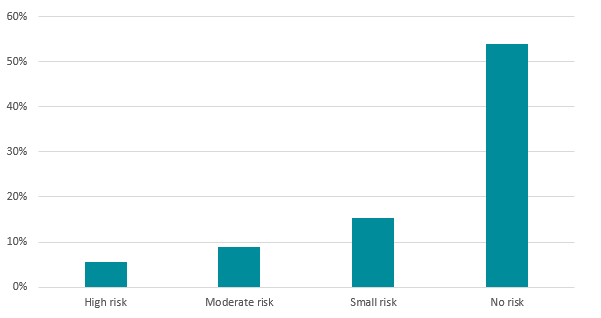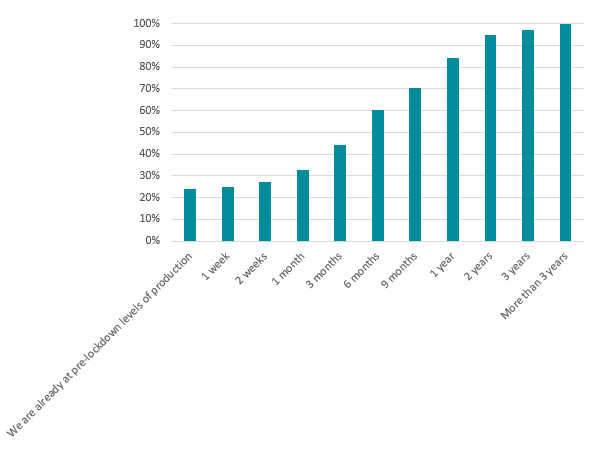
UK’s economic recovery comes to a sudden stop in September
James Endersby, CEO at Opinium said: “The loosening of restrictions over the summer allowed many businesses to make a start on the road to recovery - this has halted in September. The reimposition of restrictions for millions of people across the country has had a marked impact on the UK’s economic recovery, as well as the levels of optimism with regards to businesses’ future outlook."
"With the Job Retention scheme due to expire at the end of the month, many firms continue to reduce the number of employees on it, however, the steady rates of reduced hours and cut wages since August suggests that businesses are nowhere near ready yet for a return to ‘normal’.”
Pablo Shah, Managing Economist at Cebr said: “The results from the latest wave of the Business Distress Tracker show that the UK’s economic recovery stalled in September, as a result of the re-imposition of restrictions as well as the end of the Eat Out to Help Out scheme. This highlights that for every two steps forward that the UK takes in its economic rebuilding, it will have to take one step back in response to flare ups of coronavirus and the gradual withdrawal of government stimulus.”
Business Distress Tracker - Full findings
Business insolvency risks
Insolvency risks continue to hang over millions of businesses, although these have become less severe in recent weeks. Just under a third (30%) of businesses state that there is a risk of entering insolvency as a result of coronavirus-related disruption, which is down from 34% four weeks prior.
However, this still equates to 1.7 million businesses across the country, which includes 330,000 that feel there is a high risk of entering insolvency as a result of the crisis.

Employment impacts
As the government’s Coronavirus Job Retention Scheme expires at the end of the month, companies continue to roll back the number of employees who are currently furloughed, with the average percentage dropping from to 21% at the end of July to 18% in late September.
Firms state that currently a quarter of workers (25%) are facing reduced hours which is roughly the same proportion recorded at the end of August. A similar proportion (26%) have had their salary/wages cut which again remains unchanged since late August.
Business activity rates
After improving significantly in August, progress in rebuilding profits stalled in September. Profits over the past 30 days were 21% lower as a result of the coronavirus crisis at the end of September - unchanged from the previous wave four weeks’ previously.
After a relatively strong August for the hospitality sector, profits slumped in September, with businesses on average reporting that profits were 42% lower than they would have expected at this time of year.
Economic recovery
The share of businesses that had reached pre-lock down levels of production fell from 21% in the previous wave of the Business Distress Tracker to 20% in the latest wave. This suggests that some businesses that had fully recovered over the summer months have since seen their production fall below pre-crisis levels.
Meanwhile, the majority (56%) of businesses stated that it will be at least six months before they return to pre-lockdown levels of production, including 29% who expect this will take at least one year.



